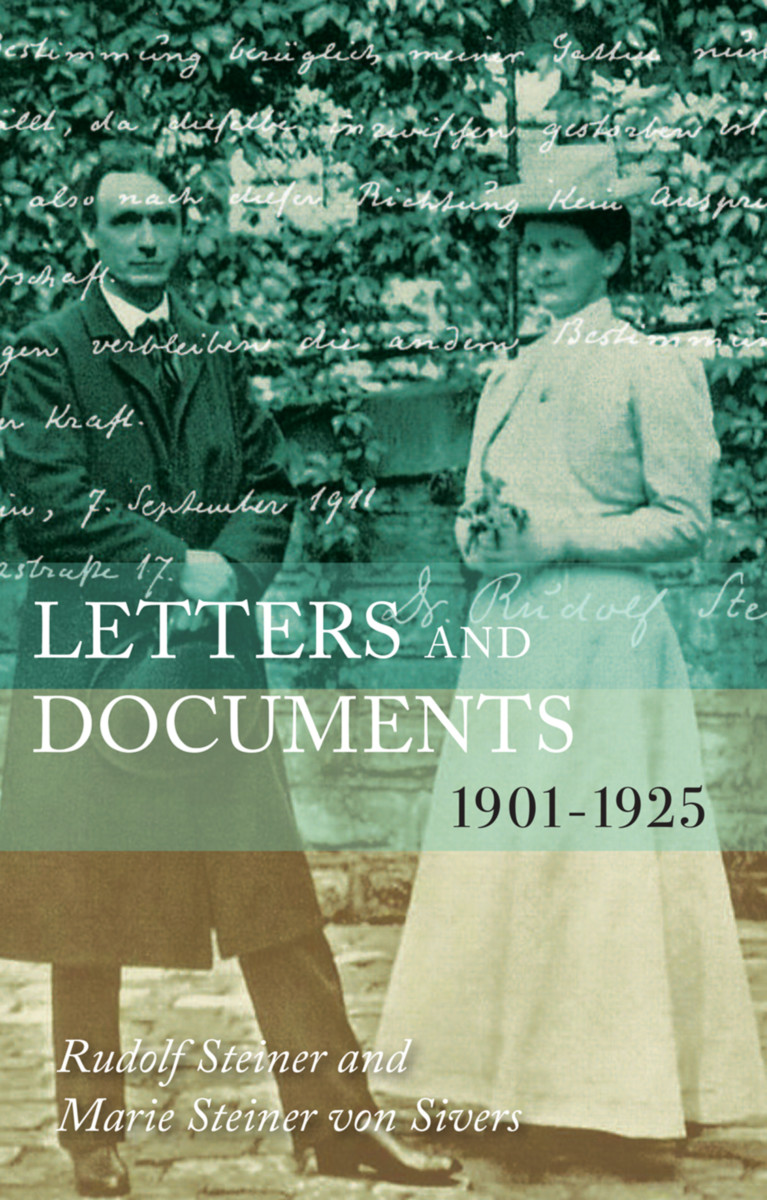Letters and Documents, 1901–1925
(CW 262)
- Publisher
Rudolf Steiner Press - Published
21st January 2020 - ISBN 9781855845701
- Pages 352 pp.
- Size 6" x 9"
Correspondence & documents, 1901–1925 (CW 262)
“I send you fondest thoughts on your birthday. On this day I will think a lot of all the beautiful things which were, and are contained in our work together, and which now always stand so beautifully before my inner eye when I describe them. Let me assure you that I write this description with love.” —Rudolf Steiner to Marie Steiner (March 13, 1925)
Containing all the correspondence between Rudolf and Marie Steiner to be found in their respective estates, this volume provides unique insight into the couple’s pivotal relationship. The years 1901 to 1925 were a time of struggle for Rudolf Steiner as he endeavored—faithfully supported by the young Marie von Sivers—to build a completely new spiritual movement on Earth. Their letters cover everything from the esoteric view of evolution and human advancement to dealing with organizational details, challenging personalities and, of course, their own relationship.
In addition to the correspondence included here, numerous documents have been inserted chronologically throughout the text. The “notes” written by Rudolf Steiner for Édouard Schuré, for example, provide a unique introduction to the volume, offering profound insights into the development of the anthroposophic movement. Also included are the several versions of Rudolf Steiner’s will. Comprehensive notes are provided, as well as an index of names and dates of relevant lectures and eurythmy performances.This volume is a translation from German of Rudolf Steiner – Marie Steiner-von Sivers: Briefwechsel und Dokumente 1901-1925 (GA 262).
Rudolf Steiner
Rudolf Steiner (b. Rudolf Joseph Lorenz Steiner, 1861–1925) was born in the small village of Kraljevec, Austro-Hungarian Empire (now in Croatia), where he grew up. As a young man, he lived in Weimar and Berlin, where he became a well-published scientific, literary, and philosophical scholar, known especially for his work with Goethe’s scientific writings. Steiner termed his spiritual philosophy anthroposophy, meaning “wisdom of the human being.” As an exceptionally developed seer, he based his work on direct knowledge and perception of spiritual dimensions. He initiated a modern, universal “spiritual science” that is accessible to anyone willing to exercise clear and unbiased thinking. From his spiritual investigations, Steiner provided suggestions for the renewal of numerous activities, including education (general and for special needs), agriculture, medicine, economics, architecture, science, philosophy, Christianity, and the arts. There are currently thousands of schools, clinics, farms, and initiatives in other fields that involve practical work based on the principles Steiner developed. His many published works feature his research into the spiritual nature of human beings, the evolution of the world and humanity, and methods for personal development. He wrote some thirty books and delivered more than six thousand lectures throughout much of Europe. In 1924, Steiner founded the General Anthroposophical Society, which today has branches around the world.
Marie Steiner-von Sivers
Marie Steiner-von Sivers (1867–1948) was born in Wlotzlawek, in Russian Poland and grew up in St. Petersburg. She trained as an actor, but left the stage when she met Theosophy through Edouard Schuré, whose works she translated. In 1900, she met Rudolf Steiner, whom she later married and worked alongside in the development of Anthroposophy. She died in Beatenberg, Switzerland.


